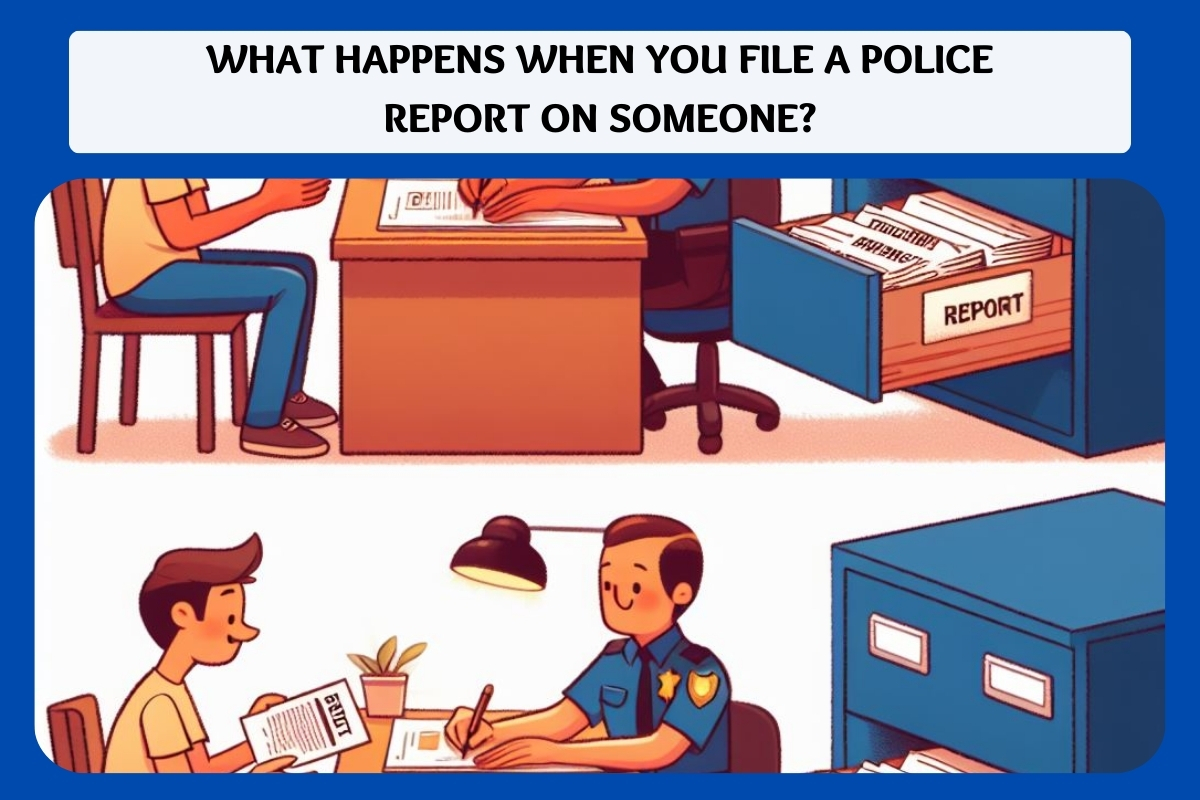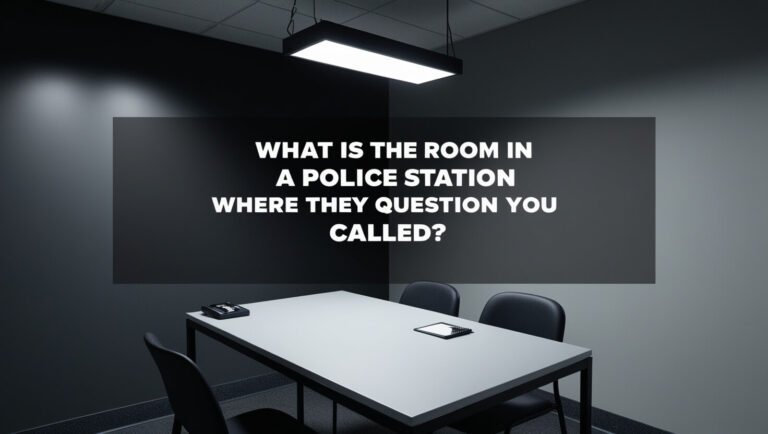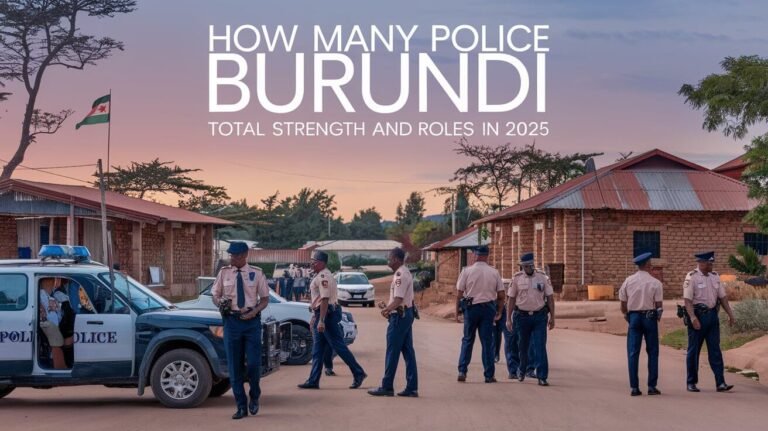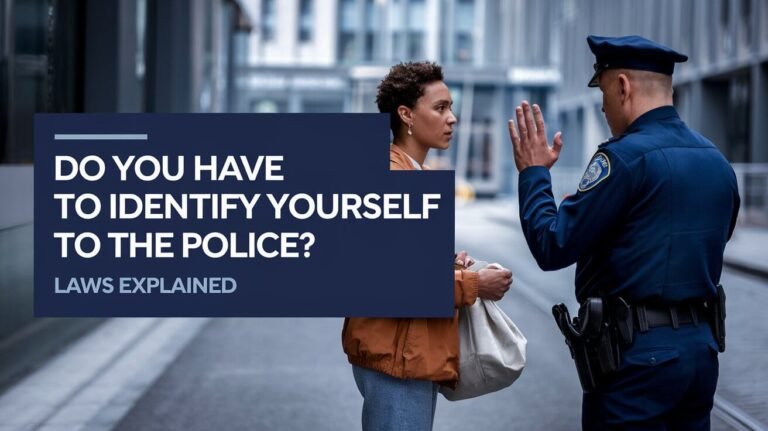What Happens When You File a Police Report on Someone?

Filing a police report is often the first step in initiating an official investigation into a crime or incident. But what exactly occurs after you make that report? This comprehensive guide will walk you through the entire process, from the initial police response to potential outcomes.
We’ll cover:
- The procedures officers follow when taking your report
- How the police investigate and determine if charges are warranted
- What happens if charges are filed, including arrests and court proceedings
- Alternatives to criminal charges, like civil lawsuits or mediation
- Rights and resources available to victims and witnesses
So, let’s Jump into the key details around what happens when you file a police report on someone.
The Initial Police Response
When you contact the police to report a crime or incident, they will dispatch officers to your location. For emergencies, dial 911, but for non-emergencies, you can call the local police department’s non-emergency number.
Once the officers arrive, their first priority is to secure the scene and ensure everyone’s safety. They will then turn their attention to you, the person filing the report.
The responding officers will ask you to provide an initial statement recounting the details of what occurred. Be prepared to answer questions such as:
- What was the nature of the incident?
- When and where did it take place?
- Who was involved (descriptions of suspects, witnesses, vehicles, etc.)?
- Was anyone injured or was property damaged/stolen?
Be truthful with the officers during this initial interview. If you’re unsure about certain details, say so instead of guessing.”
Filing the Official Police Report
After gathering the preliminary details, the officers will initiate the formal report-taking process. This typically involves:
- Getting your full statement and contact information
- Interviewing any other witnesses present
- Collecting physical evidence like photos, videos, weapons, etc.
- Documenting the crime scene and any property damage
Depending on the severity of the incident, evidence technicians or detectives may be called to assist with processing the scene.
The level of detail in the police report can vary based on the type of crime or incident being reported. In some cases, the responding officers will classify it as an “informational report” rather than a formal criminal complaint.
An informational report documents the incident details but does not necessarily initiate a criminal investigation. You can decide later if you want to pursue criminal charges.
What Happens After Filing the Report?
Once the initial report is filed, the case will be reviewed by supervisors and potentially assigned to detectives for further investigation.
The Police Investigation Process
If the incident warrants a criminal investigation, detectives will take over and conduct follow-up activities like:
- Re-interviewing the involved parties (victims, witnesses, suspects)
- Canvassing for additional witnesses and video surveillance footage
- Examining physical and digital evidence (fingerprints, DNA, phone records, etc.)
- Executing search warrants
- Building a comprehensive case file
The length of the investigation depends on the complexity of the case. Some cases may be resolved quickly, while others could take weeks or months to gather sufficient evidence.
Determination of Charges
After a thorough investigation, the case file is forwarded to the prosecutor’s office for review. Prosecuting attorneys will evaluate factors like:
- The severity of the crime
- The strength and credibility of the evidence
- The suspect’s criminal history
- Input from the victim(s)
Based on their assessment, prosecutors decide whether sufficient evidence exists to file formal criminal charges against the suspect(s). Even if you initially filed the report, prosecutors can choose not to press charges if they don’t believe the case is strong enough.
In some cases, prosecutors may proceed without the victim’s full cooperation, but this is relatively uncommon.
Going Through the Criminal Justice Process
If Charges Are Filed
The prosecutor may get an arrest warrant for the suspect(s) if charges are filed.
The arrest process typically involves:
- Law enforcement taking the suspect into custody
- Booking and processing (mugshot, fingerprints, confiscating property, etc.)
- An initial court appearance before a judge
At the initial appearance, the judge will:
- Make the suspect aware of the charges against them
- Review their rights and the potential penalties
- Set bail/bond conditions and any release requirements
From there, the case will proceed through a series of pre-trial hearings and motions. The prosecutor and defense attorney may engage in plea bargaining discussions to potentially resolve the case without a trial.
If no plea deal is reached, the case will go to trial, where you may be called as the victim/witness to testify.
The Trial Process
Being a victim/witness testifying at trial can be an intimidating and emotionally draining experience. Prosecutors will try to prepare you as thoroughly as possible beforehand.
Some tips for testifying:
- Take your time and don’t rush through your responses
- Ask the judge to explain if you don’t understand a question
- Stick to stating only the facts you witnessed
- Make eye contact with the attorney asking questions
- If needed, request a break to recompose yourself
Testifying accurately and credibly is crucial, as the verdict often weighs heavily on the victims’ and witnesses’ testimony.
Alternatives to Criminal Charges
In some incidents, criminal charges may not be warranted or desired. However, that doesn’t mean no legal recourse exists.
Civil Lawsuits
You may choose to pursue a civil lawsuit against the offending party, seeking monetary damages for any harm, losses or injuries you suffered. Civil lawsuits have a lower burden of proof than criminal cases.
The goal is to hold the defendant financially accountable rather than seeking jail time. Mediation is often required before a civil case can proceed to trial.
Other Resolution Options
Alternatives like mediation, arbitration or disciplinary actions through schools or workplaces can sometimes resolve conflicts without entering the criminal justice system.
These options aim for a mutually agreed-upon resolution while avoiding the stress and costs of lengthy court battles.
Rights and Protections for Victims/Witnesses
No matter which path your case takes, it’s important to know your rights as a victim or witness.
Most jurisdictions have:
- Victim’s rights laws that protect privacy and safety
- Resources for free counseling, legal aid, court accompaniment, etc.
- Victim compensation programs to reimburse expenses
- Measures allowing victim impact statements at sentencing
Confidentiality rules prevent publicly identifying victims.
In Conclusion
Filing a police report on someone can seem daunting initially, but understanding the process helps provide clarity. From the police investigation to potential charges and court proceedings, knowing what to expect allows victims and witnesses to feel empowered.
Alternatives like civil lawsuits or mediation are also viable options in some cases. No matter which path you choose, exercising your rights and accessing available resources can provide valuable support.
If you find yourself needing to file a police report, don’t hesitate to come forward. The justice system has procedures in place to thoroughly investigate crimes and incidents while striving to protect those who report them.






